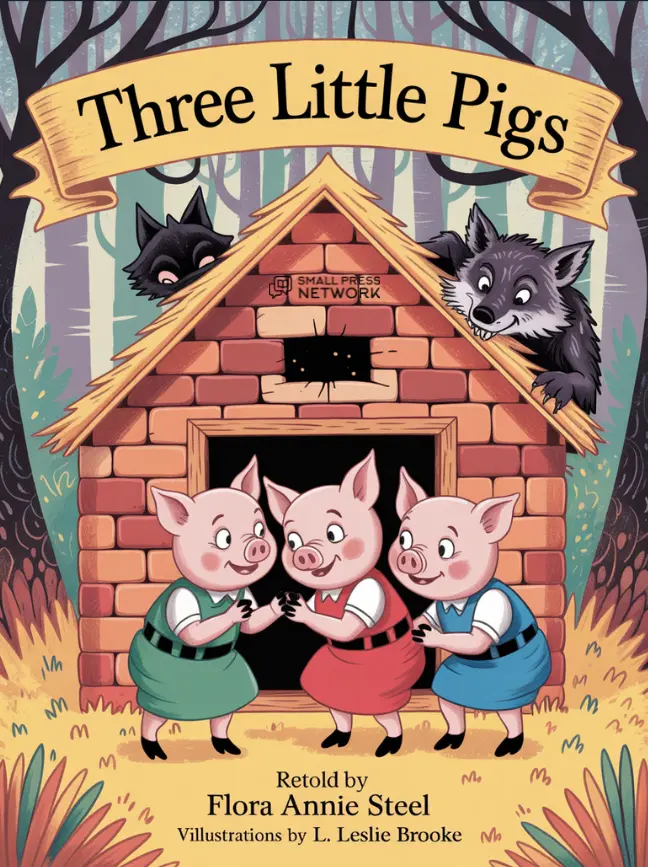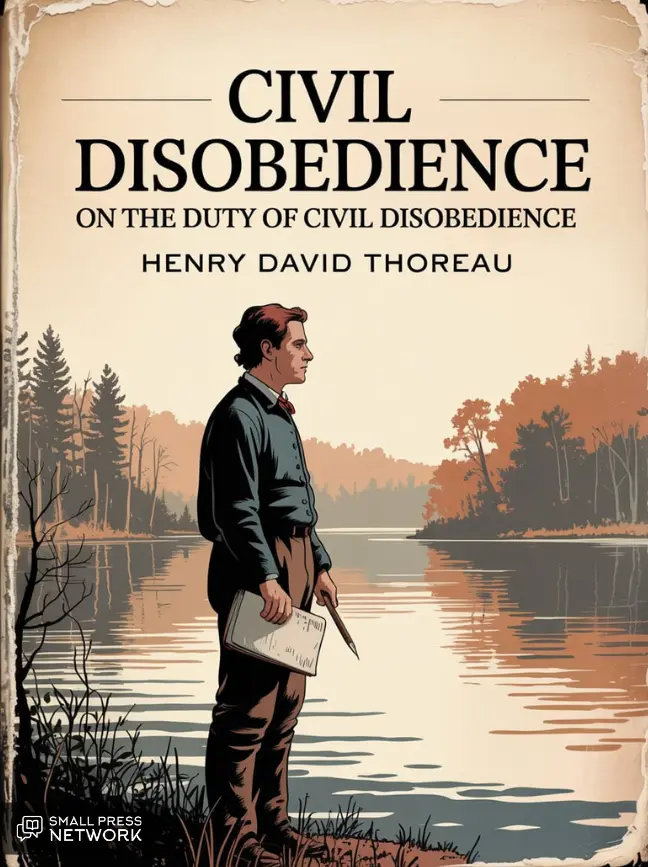658
Chapter X
After her father’s funeral Princess Mary shut herself up in her room and did not admit anyone. A maid came to the door to say that Alpátych was asking for orders about their departure. (This was before his talk with Dron.) Princess Mary raised herself on the sofa on which she had been lying and replied through the closed door that she did not mean to go away and begged to be left in peace.
The windows of the room in which she was lying looked westward. She lay on the sofa with her face to the wall, fingering the buttons of the leather cushion and seeing nothing but that cushion, and her confused thoughts were centered on one subject—the irrevocability of death and her own spiritual baseness, which she had not suspected, but which had shown itself during her father’s illness. She wished to pray but did not dare to, dared not in her present state of mind address herself to God. She lay for a long time in that position.
The sun had reached the other side of the house, and its slanting rays shone into the open window, lighting up the room and part of the morocco cushion at which Princess Mary was looking. The flow of her thoughts suddenly stopped. Unconsciously she sat up, smoothed her hair, got up, and went to the window, involuntarily inhaling the freshness of the clear but windy evening.
“Yes, you can well enjoy the evening now! He is gone and no one will hinder you,” she said to herself, and sinking into a chair she let her head fall on the window sill.
Someone spoke her name in a soft and tender voice from the garden and kissed her head. She looked up. It was Mademoiselle Bourienne in a black dress and weepers. She softly approached Princess Mary, sighed, kissed her, and immediately began to cry. The princess looked up at her. All their former disharmony and her own jealousy recurred to her mind. But she remembered too how he had changed of late toward Mademoiselle Bourienne and could not bear to see her, thereby showing how unjust were the reproaches Princess Mary had mentally addressed to her. “Besides, is it for me, for me who desired his death, to condemn anyone?” she thought.
Princess Mary vividly pictured to herself the position of Mademoiselle Bourienne, whom she had of late kept at a distance, but who yet was dependent on her and living in her house. She felt sorry for her and held out her hand with a glance of gentle inquiry. Mademoiselle Bourienne at once began crying again and kissed that hand, speaking of the princess’ sorrow and making herself a partner in it. She said her only consolation was the fact that the princess allowed her to share her sorrow, that all the old misunderstandings should sink into nothing but this great grief; that she felt herself blameless in regard to everyone, and that he, from above, saw her affection and gratitude. The princess heard her, not heeding her words but occasionally looking up at her and listening to the sound of her voice.
“Your position is doubly terrible, dear princess,” said Mademoiselle Bourienne after a pause.
“I understand that you could not, and cannot, think of yourself, but with my love for you I must do so…. Has Alpátych been to you? Has he spoken to you of going away?” she asked.
Princess Mary did not answer. She did not understand who was to go or where to. “Is it possible to plan or think of anything now? Is it not all the same?” she thought, and did not reply.
659
“You know, chère Marie,” said Mademoiselle Bourienne, “that we are in danger—are surrounded by the French. It would be dangerous to move now. If we go we are almost sure to be taken prisoners, and God knows…”
Princess Mary looked at her companion without understanding what she was talking about.
“Oh, if anyone knew how little anything matters to me now,” she said. “Of course I would on no account wish to go away from him…. Alpátych did say something about going…. Speak to him; I can do nothing, nothing, and don’t want to….”
“I’ve spoken to him. He hopes we should be in time to get away tomorrow, but I think it would now be better to stay here,” said Mademoiselle Bourienne. “Because, you will agree, chère Marie, to fall into the hands of the soldiers or of riotous peasants would be terrible.”
Mademoiselle Bourienne took from her reticule a proclamation (not printed on ordinary Russian paper) of General Rameau’s, telling people not to leave their homes and that the French authorities would afford them proper protection. She handed this to the princess.
“I think it would be best to appeal to that general,” she continued, “and I am sure that all due respect would be shown you.”
Princess Mary read the paper, and her face began to quiver with stifled sobs.
“From whom did you get this?” she asked.
“They probably recognized that I am French, by my name,” replied Mademoiselle Bourienne blushing.
Princess Mary, with the paper in her hand, rose from the window and with a pale face went out of the room and into what had been Prince Andrew’s study.
“Dunyásha, send Alpátych, or Drónushka, or somebody to me!” she said, “and tell Mademoiselle Bourienne not to come to me,” she added, hearing Mademoiselle Bourienne’s voice. “We must go at once, at once!” she said, appalled at the thought of being left in the hands of the French.
“If Prince Andrew heard that I was in the power of the French! That I, the daughter of Prince Nicholas Bolkónski, asked General Rameau for protection and accepted his favor!” This idea horrified her, made her shudder, blush, and feel such a rush of anger and pride as she had never experienced before. All that was distressing, and especially all that was humiliating, in her position rose vividly to her mind. “They, the French, would settle in this house: M. le Général Rameau would occupy Prince Andrew’s study and amuse himself by looking through and reading his letters and papers. Mademoiselle Bourienne would do the honors of Boguchárovo for him. I should be given a small room as a favor, the soldiers would violate my father’s newly dug grave to steal his crosses and stars, they would tell me of their victories over the Russians, and would pretend to sympathize with my sorrow…” thought Princess Mary, not thinking her own thoughts but feeling bound to think like her father and her brother. For herself she did not care where she remained or what happened to her, but she felt herself the representative of her dead father and of Prince Andrew. Involuntarily she thought their thoughts and felt their feelings. What they would have said and what they would have done she felt bound to say and do. She went into Prince Andrew’s study, trying to enter completely into his ideas, and considered her position.
The demands of life, which had seemed to her annihilated by her father’s death, all at once rose before her with a new, previously unknown force and took possession of her.
660
Agitated and flushed she paced the room, sending now for Michael Ivánovich and now for Tíkhon or Dron. Dunyásha, the nurse, and the other maids could not say in how far Mademoiselle Bourienne’s statement was correct. Alpátych was not at home, he had gone to the police. Neither could the architect Michael Ivánovich, who on being sent for came in with sleepy eyes, tell Princess Mary anything. With just the same smile of agreement with which for fifteen years he had been accustomed to answer the old prince without expressing views of his own, he now replied to Princess Mary, so that nothing definite could be got from his answers. The old valet Tíkhon, with sunken, emaciated face that bore the stamp of inconsolable grief, replied: “Yes, Princess” to all Princess Mary’s questions and hardly refrained from sobbing as he looked at her.
At length Dron, the village Elder, entered the room and with a deep bow to Princess Mary came to a halt by the doorpost.
Princess Mary walked up and down the room and stopped in front of him.
“Drónushka,” she said, regarding as a sure friend this Drónushka who always used to bring a special kind of gingerbread from his visit to the fair at Vyázma every year and smilingly offer it to her, “Drónushka, now since our misfortune…” she began, but could not go on.
“We are all in God’s hands,” said he, with a sigh.
They were silent for a while.
“Drónushka, Alpátych has gone off somewhere and I have no one to turn to. Is it true, as they tell me, that I can’t even go away?”
“Why shouldn’t you go away, your excellency? You can go,” said Dron.
“I was told it would be dangerous because of the enemy. Dear friend, I can do nothing. I understand nothing. I have nobody! I want to go away tonight or early tomorrow morning.”
Dron paused. He looked askance at Princess Mary and said: “There are no horses; I told Yákov Alpátych so.”
“Why are there none?” asked the princess.
“It’s all God’s scourge,” said Dron. “What horses we had have been taken for the army or have died—this is such a year! It’s not a case of feeding horses—we may die of hunger ourselves! As it is, some go three days without eating. We’ve nothing, we’ve been ruined.”
Princess Mary listened attentively to what he told her.
“The peasants are ruined? They have no bread?” she asked.
“They’re dying of hunger,” said Dron. “It’s not a case of carting.”
“But why didn’t you tell me, Drónushka? Isn’t it possible to help them? I’ll do all I can….”
To Princess Mary it was strange that now, at a moment when such sorrow was filling her soul, there could be rich people and poor, and the rich could refrain from helping the poor.
She had heard vaguely that there was such a thing as “landlord’s corn” which was sometimes given to the peasants. She also knew that neither her father nor her brother would refuse to help the peasants in need, she only feared to make some mistake in speaking about the distribution of the grain she wished to give. She was glad such cares presented themselves, enabling her without scruple to forget her own grief. She began asking Dron about the peasants’ needs and what there was in Boguchárovo that belonged to the landlord.
“But we have grain belonging to my brother?” she said.
661
“The landlord’s grain is all safe,” replied Dron proudly. “Our prince did not order it to be sold.”
“Give it to the peasants, let them have all they need; I give you leave in my brother’s name,”
said she.
Dron made no answer but sighed deeply.
“Give them that corn if there is enough of it. Distribute it all. I give this order in my brother’s name; and tell them that what is ours is theirs. We do not grudge them anything. Tell them so.”
Dron looked intently at the princess while she was speaking.
“Discharge me, little mother, for God’s sake! Order the keys to be taken from me,” said he. “I have served twenty-three years and have done no wrong. Discharge me, for God’s sake!”
Princess Mary did not understand what he wanted of her or why he was asking to be discharged. She replied that she had never doubted his devotion and that she was ready to do anything for him and for the peasants.





